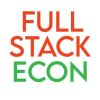10 Economic Policy Books That Separate Experts from Amateurs
Discover Economic Policy Books trusted by James Altucher, Mariana Mazzucato, and William Cohan for deep economic insights.







What if the economic policies shaping your daily life were more transparent—and you could see the forces behind inflation, jobs, and trade decisions? Economic policy isn’t just for economists; it affects your paycheck, cost of living, and future opportunities. Understanding these policies is crucial now as global economies face inflation, labor shifts, and monetary challenges.
Experts like James Altucher, founder of Reset Inc, discovered crucial insights on labor market changes through Andrew Yang’s The War on Normal People, shedding light on automation’s impact. Meanwhile, Mariana Mazzucato, Director at UCL's Institute for Innovation & Public Purpose, credits Stephanie Kelton’s The Deficit Myth for reshaping her view on government budgets and public finance. William Cohan, former Wall Street banker, recommends The Lords of Easy Money for its gripping account of Federal Reserve decisions reshaping the American economy.
While these expert-curated books provide proven frameworks, readers seeking content tailored to their specific economic background, interests, or professional focus might consider creating a personalized Economic Policy book that builds on these insights and matches your unique goals.
Recommended by Timothy B. Lee
Reporter covering economics and technology
“I wrote an in-depth review of "The Lords of Easy Money, a new book by Christopher Leonard. When I started listening to it I expected it to be an "End the Fed" type screed, but it was more interesting than that.” (from X)
by Christopher Leonard··You?
by Christopher Leonard··You?
Unlike most economic policy books that focus on abstract theory or dry data, Christopher Leonard draws on his deep journalistic experience investigating the Federal Reserve to reveal how its quantitative easing policies have reshaped the American economy in unexpected ways. You’ll gain insight into the Fed’s decision-making processes and the ripple effects on income inequality, corporate debt, and market stability, especially through the lens of key events like the 2010 quantitative easing launch and the COVID-era stimulus. The book suits anyone curious about how central banking affects everyday Americans and financial markets, offering a detailed narrative rather than just economic jargon. However, if you're seeking purely technical monetary policy analysis, this narrative-driven approach may feel less conventional.
Recommended by Competitive Enterprise Institute
“Irwin’s magnum opus . . . is already a classic. Given the prominent role trade is playing in politics right now, it is also very timely. At almost seven hundred pages, Clashing over Commerce looks intimidating. But once you start reading, it isn’t. Irwin tells a coherent story that spans generations, showcasing the prominent personalities in the great trade debate, their larger philosophical and economic arguments, and the legislation and policies they fought over. It hits on all levels.”
by Douglas A. Irwin··You?
by Douglas A. Irwin··You?
When Douglas A. Irwin first realized the depth of political and economic battles shaping US trade policy, he set out to trace its history through exhaustive research and analysis. You’ll gain insight into the economic interests behind protectionism and free trade, understanding key moments like the Civil War's tariff shifts and the Smoot-Hawley controversy during the Great Depression. The book unpacks how geographic economic groups influence legislative battles, offering a nuanced view rather than a simple pro- or anti-trade stance. If you want a detailed narrative on how US trade policy evolved and why it remains contentious, this is a measured and thorough exploration worth your time.
by TailoredRead AI·
This personalized book presents a tailored framework exploring the intricacies of central bank decision-making and the resulting economic impacts. It provides methodologies for analyzing monetary policy tools, such as interest rate adjustments, quantitative easing, and inflation targeting, while adjusting to your specific background and goals. The book focuses on how central banks influence employment, inflation, and financial stability within diverse economic contexts. By cutting through generalized advice, it offers a tailored approach to understanding policy transmission mechanisms, the role of communication strategies, and the balancing act between growth and price stability. This targeted analysis fits your unique situation, equipping you with actionable insights relevant to your professional or academic interests.
Recommended by James Altucher
Founder & CEO Reset Inc, StockPickr
“@hallofwonders He's appealing to you and me. In any case, I highly recommend a great book, 'The War on Normal People', by a brilliant young man named @AndrewYang” (from X)
by Andrew Yang··You?
Unlike most economic policy books that focus solely on high-level theory, Andrew Yang's work dives into the urgent realities facing American workers as automation reshapes the job market. Drawing from his entrepreneurial background and leadership at Venture for America, Yang lays out the challenges of disappearing jobs and makes a case for Universal Basic Income as a necessary adaptation. You’ll gain insight into how technological advances threaten traditional employment and why a new economic model—what he calls “human capitalism”—might offer stability. This book is especially relevant if you’re concerned about labor trends, income inequality, and innovative solutions to economic disruption.
Recommended by Mariana Mazzucato
UCL Professor, Director of Institute for Innovation & Public Purpose
“Kelton's game-changing book on the myths around government deficits is both theoretically rigorous and empirically entertaining. It reminds us that money is not limited, only our imagination of what to do with it. After you read it you will never think of the public purse as a household economy again. Read it!”
by Stephanie Kelton··You?
by Stephanie Kelton··You?
When Stephanie Kelton first realized how deeply misunderstood government deficits are, she crafted a book that challenges the notion that federal budgets should mimic household finances. You learn to rethink money, taxes, and deficits through the lens of modern monetary theory (MMT), which argues that sovereign currency issuers have far more fiscal space than commonly believed. Chapters dissect myths around deficits harming future generations or crowding out investment, while revealing how such misconceptions limit policy options on healthcare, jobs, and climate. This book suits anyone interested in economic policy reform, especially those seeking fresh perspectives on public finance and social equity.
Recommended by The New York Times Book Review
“[A] sweeping treatise on inequality in America. . . . A rallying call.”
by Robert B. Reich··You?
by Robert B. Reich··You?
Unlike most economic policy books that often rely on abstract theory, Robert B. Reich’s Saving Capitalism dives into the real-world dynamics shaping America’s economy today. Drawing from decades at the intersection of politics and economics, Reich dismantles myths about free markets, exposing how power concentrates wealth and shrinks the middle class. You’ll find detailed explanations on why wages don’t reflect true worker value and why government isn’t just about size but purpose. This book suits anyone wanting to understand the roots of inequality and the policy choices that could restore economic fairness.
by TailoredRead AI·
This personalized framework on US trade policy analyzes the complex battles and economic consequences shaping contemporary commerce. It provides a tailored approach that dissects key trade conflicts, legislative debates, and policy shifts with a focus on how these impact different industries and economic sectors. The book addresses the intricate interplay of protectionism, free trade, tariffs, and international negotiations, adjusting to your specific interests and background in economics or related fields. It cuts through irrelevant advice by focusing on actionable insights and strategic methodologies relevant to your context, offering a nuanced exploration of trade policy outcomes and economic ramifications.
Recommended by Thomas Sargent
Economics professor, Hoover Institution fellow
“This book is the product of years of Cochrane’s groundbreaking research on interrelated topics central to modern macroeconomics and finance. In addition to providing stern but fair criticisms of a vast technical literature, Cochrane shows by example how enlightening good data, econometrics, and economic theory can be when in the right hands.”
by John H. Cochrane··You?
by John H. Cochrane··You?
When John H. Cochrane first discovered conflicting explanations for inflation, he set out to clarify how government debt and fiscal policy shape price levels. This book dives into the fiscal theory of the price level, explaining why inflation happens when governments can't fully repay debt, and how monetary policy interacts with fiscal realities. You’ll gain insight into how deficits, debt, and tax expectations influence inflation trends, with detailed models and historical analysis demonstrating these dynamics. If you want to understand inflation beyond standard monetary theories and grasp how policy tools truly affect prices, this book offers a thorough, data-driven perspective.
Recommended by Ron Paul
Former Congressman from Texas
“Peter Schiff sounded the alarm about the housing bubble created by the Federal Reserve and predicted the bubble's inevitable collapse, yet he was ignored by mainstream economists and ridiculed by the media. In The Real Crash he is at it again, illustrating how the financial crisis of 2008 is nothing compared to what is coming down the road. Peter Schiff is right again. I hope more people listen this time.”
by Peter D. Schiff··You?
by Peter D. Schiff··You?
Peter D. Schiff's journey as an investment broker and financial commentator deeply informs this book, which grew from his foresight into economic vulnerabilities long before the 2008 crash. You gain a clear-eyed view of the mechanisms behind America's inflated economic bubble, including government overspending and unsustainable debt practices. Schiff lays out two possible futures: one where current policies lead to severe economic collapse, and another where radical fiscal reforms pave the way for recovery. This book suits those interested in understanding the roots of economic instability and the policy changes necessary to address looming crises.
Recommended by Richard Clarida
Economics Professor, Columbia University
“This timely and substantive volume is simply a must-read for anyone interested in the way forward for US monetary policy. The volume draws on the insights of current and former Fed officials as well as the expertise and insights offered by a who's who of academic scholars and financial market participants. The essays are uniformly rigorous and accessible.”
by Michael D. Bordo, John B. Taylor, John H. Cochrane··You?
by Michael D. Bordo, John B. Taylor, John H. Cochrane··You?
Unlike most economic policy books that focus narrowly on theoretical frameworks, this volume arises from a 2022 Hoover Institution conference tackling the U.S. monetary policy challenges amid rising inflation. Authors Michael D. Bordo, John B. Taylor, and John H. Cochrane, each with deep academic and policy backgrounds, compile essays that dissect why monetary policy lagged and explore paths to recalibrate it. You'll gain insights into the interplay between fiscal shocks from the pandemic, adherence to rules versus discretion in Federal Reserve actions, and strategies aimed at disinflation. The book benefits economists, policymakers, and anyone seeking a nuanced understanding of the recent inflation crisis and monetary responses.
Recommended by Javier Solana
President @EsadeGeo, Brookings Fellow
“I am sure it will be an interesting book. “21st Century Monetary Policy” Ben Bernanke” (from X)
by Ben S. Bernanke··You?
When Ben S. Bernanke first reflected on his tenure as Federal Reserve chair, he recognized the crucial shifts in monetary policy shaped by unprecedented economic challenges like the Great Inflation and the COVID-19 crisis. This book walks you through how the Fed evolved its tools—from traditional interest rate adjustments to direct lending and massive asset purchases—to stabilize the economy during turbulent times. You’ll gain insight into the Fed’s decision-making processes, including its pivot toward emphasizing employment alongside inflation control, and the emerging challenges it faces such as cryptocurrency and financial instability. If you want to deepen your understanding of modern monetary policy mechanics and the personalities behind them, this book offers a detailed, nuanced perspective rather than simplistic policy prescriptions.
Recommended by Alex Andreou
Writer, broadcaster, cultural commentator
“An extraordinary interview with Sir Howard Davies - the man who, quite literally, wrote the book on Chancellors. Revealing, insightful, and takes no prisoners. Have a listen.” (from X)
by Howard Davies··You?
by Howard Davies··You?
When Howard Davies first realized how the Treasury managed to reassert its dominance despite losing interest rate control in 1997, he set out to reveal the intricate power plays behind British economic policymaking. Through detailed interviews with Chancellors and senior officials, you learn how the Treasury navigated crises from the global financial meltdown to Brexit and COVID-19, balancing political pressures and economic strategy. Chapters dissect key moments like the austerity program and the Scottish referendum, providing insight into the Treasury’s evolving role. This book suits anyone curious about the mechanics of economic policy in the UK, especially those interested in government finance and crisis management.
Get Your Personal Economic Policy Guide Fast ✨
Stop following generic advice. Receive economic policy strategies tailored to your needs in minutes.
Join 15,000+ Economic Policy enthusiasts who've personalized their approach
Conclusion
These ten books reveal critical themes: the intricate balance of monetary and fiscal policy, the political economy behind trade and regulation, and the human impact of economic shifts—from labor markets to income inequality. If you're grappling with inflation concerns, The Fiscal Theory of the Price Level and How Monetary Policy Got Behind the Curve offer deep dives into policy mechanics. For those focused on inequality and reform, Saving Capitalism and The Deficit Myth provide thoughtful perspectives.
For rapid understanding of monetary policy evolution, combine Ben Bernanke’s 21st Century Monetary Policy with Christopher Leonard’s The Lords of Easy Money. If you want a UK perspective on crisis management, The Chancellors stands out.
Once you've absorbed these expert insights, create a personalized Economic Policy book to bridge the gap between general principles and your specific situation. Tailoring knowledge to your context empowers confident economic decisions in a complex world.
Frequently Asked Questions
I'm overwhelmed by choice – which Economic Policy book should I start with?
Start with a book that aligns with your interests. For understanding monetary policy, try The Lords of Easy Money. If labor market changes intrigue you, The War on Normal People offers practical perspectives. Choosing based on your focus helps you engage meaningfully from the outset.
Are these books too advanced for someone new to Economic Policy?
Not necessarily. Several books, like Saving Capitalism, explain complex issues in accessible language. Others delve deeper into theory but remain readable. You can pick books that fit your current knowledge and gradually explore more technical works as you grow confident.
What’s the best order to read these Economic Policy books?
Consider starting with broader narratives like Clashing over Commerce or Saving Capitalism to grasp key themes. Then move to specialized works such as The Fiscal Theory of the Price Level or How Monetary Policy Got Behind the Curve to deepen technical understanding.
Do these books focus more on theory or practical application?
The selection balances both. Books like The Deficit Myth challenge fiscal theory, while The Real Crash and The Chancellors analyze real-world policy decisions and crisis management, offering practical insights into economic policymaking.
Are any of these books outdated given how fast Economic Policy changes?
These books include recent releases like The Lords of Easy Money (2022) and 21st Century Monetary Policy (2022), ensuring current perspectives. Older works remain relevant for foundational understanding of enduring economic principles and historical context.
How can I apply these expert Economic Policy insights to my specific career or interests?
Yes, while these books provide valuable expert views, personalized content helps you focus on the policies and themes most relevant to your situation. You can create a personalized Economic Policy book that complements these insights with tailored analysis and examples, enhancing practical application.
📚 Love this book list?
Help fellow book lovers discover great books, share this curated list with others!
Related Articles You May Like
Explore more curated book recommendations









